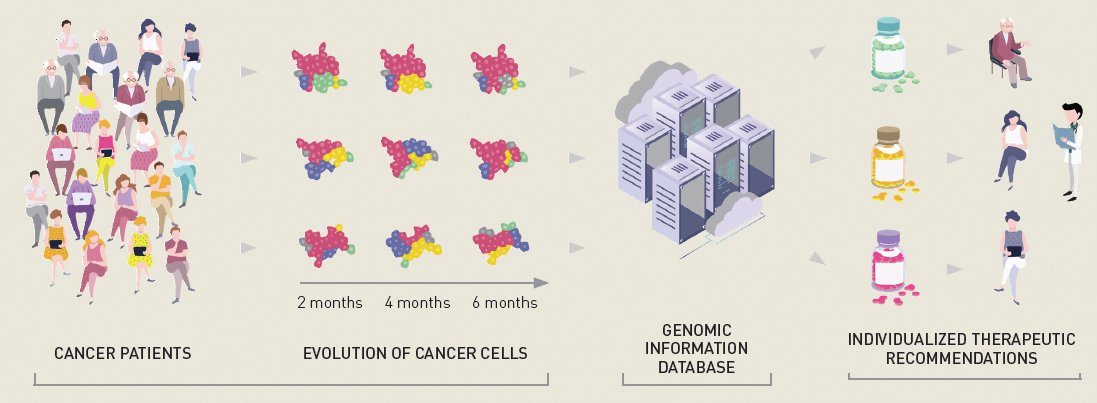Personalizing Cancer Treatment

Despite decades of research, the prevention and effective treatment for different types of cancer remain elusive to scientists. Across the world, about 1 in 6 people succumb to cancer. Given the pressing need to stay ahead of the curve, targeted treatments have become more sought-after than ever.
Overcoming the limits of the conventional one-size-fits-all approach, the innovative pairing of big data and cancer genomics has deepened understanding of the evolutionary history of malignant tumors, improved forecasts along the course of the disease in each patient and unleashed greater potential for optimized therapeutic options. The computational models developed by computational biologist and bioinformatics specialist Prof Jiguang Wang and his interdisciplinary Wang Lab, are exactly at the forefront of such advances in precision medicine.
The groundbreaking analytical approach allows researchers to closely track the mutations of a single tumor over time and integrate the findings with the analysis of tumors found in many different patients. The resultant statistical models then serve to indicate the relationships between carcinogenic gene mutations and the order in which they usually occur. A case in point is Prof Wang’s adoption of the methodology on glioblastoma, a particularly aggressive and invariably fatal brain cancer.
Currently, the Wang Lab is working closely with leading front-line oncologists. An artificial intelligence system is being trained to correlate drug response with genomic data, with the ultimate aim to automatically predict the optimal drugs for different patients.
Prof Jiguang Wang is Padma Harilela Associate Professor of Life Science and Associate Professor of Chemical and Biological Engineering. Named one of the 2019 Excellent Young Scholars (EYS) by the National Natural Science Foundation of China (NSFC), Prof Wang heads the Wang Lab which regularly handles 200-400 terabytes of data, made accessible through projects such as The Cancer Genome Atlas.